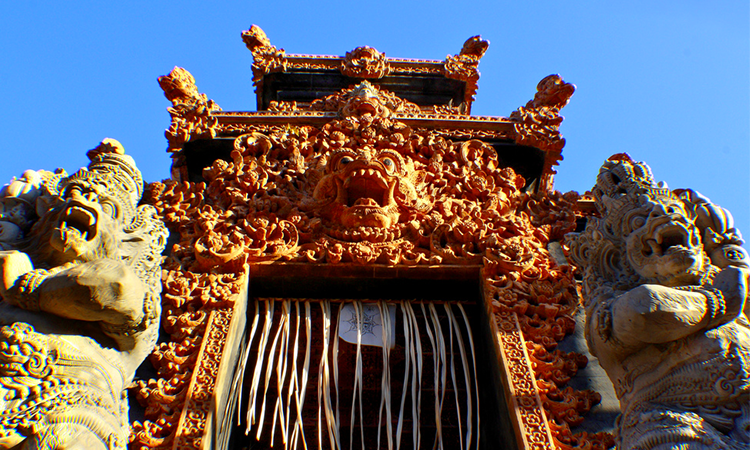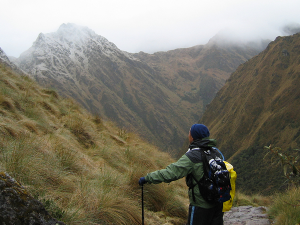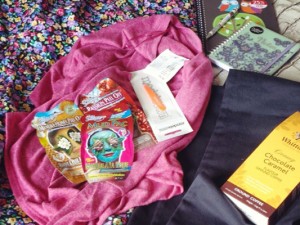
Hi there and welcome to a special episode of MyTravelMoneyTV. This week we’re very excited to welcome Simon England, Head of Commercial and Operations at FairFX. As one the UK’s leading online currency and foreign exchange specialists, FairFX are the absolute experts in their field and today we talk to Simon about where to go to take your pound further in 2014.
So Simon, it’s great to have you. I guess we’d love to know if 2014 is the year of cheaper holiday locations! If so, could you tell us a little more about these places?
Certainly. What we are looking at is where the Pound has got stronger against all these different currencies around the world. So there are two real categories to look at. These are winter sun and skiing. So at this time of year, people are thinking, where am I going to go for my skiing holiday? So you’ve got places as far flown as Japan, and because the Japanese Yen has got a bit weaker against the Pound, you’re around about 18% better off than you would have been last year. So literally for every £100, you get an extra £18 to spend so that’s great to think that you can just go out and have a meal for free that you might not have had the year before. A bit closer to home you’ve got Norway as well, about 11% higher than last year. If you’re heading over to the west, you’ve got the Canadian Dollar which is 9% better than it was last year. The great thing about some of these places is that you’re not just going skiing, you’ll also be bringing back some nice bits and pieces and souvenirs as well. If you’re like me and you’re after some sun then there are all sorts of places offering some great value. So Argentina is up 28%, which of course means a lot more Pesos for your Pound. South Africa. a lot of people go there at this time of year because you’ve got great safaris and the Rand is about 21% better so that’s had a real impact.
Want to make the most of these great value currencies? Check out live exchange rates.
Picking up on what you said about bringing back some nice bits and pieces abroad, a lot of these countries are home to markets and such which can be quite daunting. When buying souvenirs and keepsakes, how do you recommend tourists pay?
I guess if you’re going in to shops where you can use electronic payment, then it is always best to pay by some form of card. This is purely to prevent you from carrying a large amount of cash through the streets. In places such as Russia, you don’t really want to have a large amount of cash in your wallet, as of course when it’s gone, it’s gone. So things like debit cards, prepaid currency cards etc. are great because you know how much you are spending to help you budget. Now if you do need cash, there’s no problem in using cash, but try and restrict the amount of cash you take out and about. Certainly if you are in the bazaars and all that sort of stuff then be mindful not to let everybody know that you are carrying a load of cash in your pocket.
How do you think people can avoid getting ripped off when they go to the bazaars?
I think the key is to treat it like a game. They know that you are coming to spend money. You know, market stalls are there to sell you a product and you are there to go and buy it. So you’ve already established that, by going there, you’ve got two roles to play. As long as you’re not afraid to actually go in and just have fun with it. It’s not like in this country where there is a set price, and that is the price you pay. Just have fun with it and they’ll appreciate it as well because that’s part of their way of life. So go with it, be bold and haggle. The worst thing that could happen is that you’ll end up paying what you thought you’d be paying in the first place. The best thing that could happen is that you walk away and tell everyone that you’ve just saved yourself £50.
When you go abroad, there are many currency exchange stands that offer 0% commission etc. How true are these and should holidaymakers exchange their money here?
0% commission is right up there with ‘up to’ on Broadband speeds you know, it’s a bit of a con because commission is one thing, and exchange rates are another. They are two very distinct things. In the old days when you were converting cash or even traveller’s cheques, you would pay commission on top of the exchange rate, because it was a way for banks, building societies and the Post Office to make even more money. Then some marketing guy said, you know what, let’s get rid of the commission and everyone went, wahey, we’re getting a better deal. But of course if the exchange rate that they are using isn’t near to what the exchange rate should be, then you will probably end up paying more than you would if you were actually paying commission. This is because with commission, they’ll advertise 2% so that you know if you’re exchanging £100, you’re paying £2. But if they use an exchange rate to widen what we call the ‘spread’, you could be 4-12% out and you wouldn’t know, but you’d think oh I’m getting 0% commission so I’m getting a good deal.
So you’d say it’s best not to buy in to these claims?
It’s about being aware. No one expects everybody to be an expert in the city or an expert in exchange rates but in this day and age when we’ve all got our mobile phones and tablets, there are free apps that allow you to see what the ‘base exchange rate’ is. This is the rate that the banks trade at with each other. So the nearer to that you’re getting, the better the deal is. It’s easy to work out what the exchange rates are because you just divide one by the other and it will give you a percentage.
Where do you think the best place to exchange currency is when you go abroad?
It’s a question of being prepared and doing it as early as possible. So either ordering it and going for cash as there are plenty of places to order it online and you can have it delivered securely to your home the next day, which is great. Prepaid cards again, have revolutionised the industry so that you’re still getting the best exchange rates, but you also have that familiar chip and PIN security. It also means that wherever you go, for example on a round the world trip, you can just take one card as opposed to lots of different currencies. Failing that, you can still use your bankcard if you must, but be aware that convenience comes at a cost.
Is there anywhere in the world, where you would recommend holidaymakers using a credit or debit card when making payments?
Well yes you can, and ultimately it is just a convenient method of doing it. Obviously with credit cards you get some sort of purchase protection. If you are going to somewhere like America and you want to buy an iPad or something like that, then there is an element to say that well actually, you might pay more but you can benefit from that protection of using your credit card. Personally, I think that in this day and age, with the goods you’re going to be buying, it’s not really that much of an issue. You really want to look at what the best value cost is and that’s always going to be pre-ordered cash or a prepaid currency card.
Is there a worst place to buy or exchange your currency?
At the Airport. Quite simply. It doesn’t matter whether you’re taking off or landing, they know they’ve got a captive market. So of course the exchange rates there can be up to 18-20% at some regional airports. So of course that means for every £100 you exchange, it’s going to cost you another £20. It’s only when you actually put it in monetary values, people can’t believe they’re pretty much giving away money for nothing. Like I said, with cash online you’re looking at maybe 1-2% so there’s really that much difference. Of course, be aware that it will also happen when you land.
Now, abroad, when paying with credit card, we often have the choice to pay in Pound Sterling or the local currency. What is the best way to pay when using a credit card?
Never take the local currency. It’s something that they call ‘dynamic currency conversion‘. It was brought to market by a hotel chain about 20 years ago. Of course it’s great because you think brilliant, this is really convenient, I’m paying in the local currency. What generally tends to happen is two things. First of all they convert your currency to their currency and they’ll put in again, what we call the ‘spread‘. So they’ll probably put about 5-7% on there. Because you’re paying with your credit card in a different currency, it’s going to be happening at the other end as well. So you’ve just got to be really careful that you understand what the cost is that’s advertised and what you’re paying. So it’s always best to say, no, I’m happy to pay in your currency and then you know what your exchange rate is either on your credit card or prepaid currency card.
To find out more, check out: ‘What is dynamic currency conversion?’
A lot of people are travelling to Brazil this year for the World Cup. Is there any advice you would offer in terms of how to keep your money safe or what the best payment method is whilst you’re out there?
It’s a combination again. Brazil is a country where, unfortunately, credit card fraud is very high. So I would be very wary about using your bank attached credit card because once it is exposed, your bank account could be cleared out very quickly. That said, cash again is not always the most secure option on the streets of Brazil. They know that there are going to be millions of people there ripe for the picking. So ideally, you want a combination of a small amount of cash and a prepaid currency card. Again, they’re great because if your card gets nicked, well then you just block it and get your funds back and you don’t have to worry about someone having your details that are attached to your bank account back home. Brazil has just entered, what’s called the PIN waiver scheme. Up until last year, you had no protection if your credit card was used over there. It’s now part of the global scheme so, as long as you have a chip and PIN card, you will have protection and that’s the same for prepaid cards as well.
And lastly, we’d love to know how you exchange your travel money when you go abroad?
I’m a big fan of doing a general mix. So I’ll usually order some cash, but not too much otherwise I’ll spend it all. So I’ll also get a prepaid currency card as well so that if I’ve got some money left over, I’ll just save it for my next trip.
Thank you so much for your time Simon, it’s been absolutely great having you today. Hopefully this has given you an insight to the best places to travel to this year in terms of value for currency.
Of course, if you have any questions, please feel free to follow and tweet us @mytravelmoneyUK or e-mail me directly at [email protected]
Sofia Kluge on Google+







